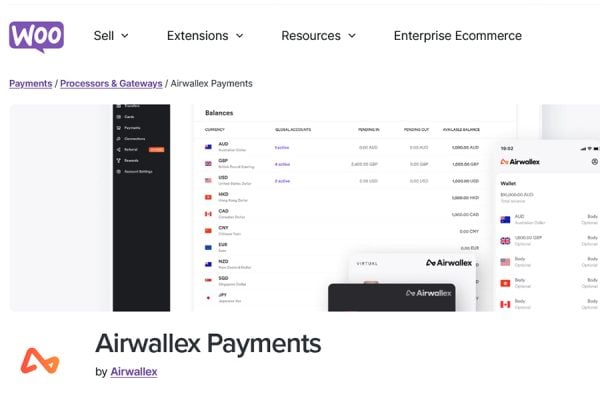While 54% of global consumers expect to increase their cross-border purchasing over the next six to twelve months, they need flexibility and transparency in the digital payment experience to make that happen. In a report released today by leading global payments and financial platform Airwallex and Edgar, Dunn & Company, 77% of consumers also said they would abandon their cart if their preferred payment method was not offered.
E-commerce is more global than ever. Despite ongoing economic uncertainty and slowing global growth, it is clear that consumer spending will continue to grow. With the global cross-border e-commerce market set to reach USD 7.9 trillion by 2030[1], it is critical for international merchants to solve consumer pain points and deliver the best possible customer experience in order to thrive in this competitive market.
As a global platform, we see millions of transactions on a regular basis, and are eager to find more innovative ways to support merchants as they navigate the complexities of cross-border e-commerce.
– Kai Wu, Chief Revenue Officer at Airwallex
Airwallex’s inaugural global e-commerce report is designed to understand the state of cross-border e-commerce, uncovering the challenges consumers and merchants face as they carry out cross-border e-commerce payment transactions. It provides key insights on emerging consumer sentiments and preferences, as well as broader market dynamics across Australia, China, Hong Kong, Singapore, the UK and the US.
Trust in personal data security and international merchants helping drive increased cross-border spend
- 61% of consumers perceive international merchants to be trustworthy, while 65% expressed confidence in the security of their personal and financial information when buying from international merchants.
- Globally, the US (36%) and China (25%) stood out as the top regions for consumers’ international shopping. 72% of consumers from China ranked the US and Canada as the top region for their international shopping, whereas China was the top country that consumers from the US (41%) Singapore (35%), and the UK (35%) shopped internationally from.
Digital payments are enabling a more customised, seamless cross-border payment experience for consumers
The rise of digital payment methods is a key reason consumers now feel more comfortable buying goods and services from anywhere in the world, emphasising the importance of flexibility and transparency in the payments and shipping process.
- When shopping with international merchants, 77% of survey consumers would likely abandon their cart if their preferred payment method is not available. Additionally, 54% are unlikely to return to online stores that do not transparently disclose additional fees like currency conversion and international transaction fees.
- Credit cards (39%) were ranked as the most frequently used payment method among consumers shopping online from international merchants, followed by global digital wallets (26%).
- Shipping costs and transparency are ranked as the most important factors when evaluating the shipping policy of an international merchant (41%), while lengthy refund processing times represent the most prominent challenge for consumers (47%).
Cross-border shopping driven by enhanced online shopping experience, price competitiveness and broader product selection
Understanding the diverse considerations and preferences of consumers across regions is key for businesses seeking success in the global marketplace.
- 34% of consumers cited greater product options as the primary incentive for shopping internationally. This motivation closely competes with the desire for better quality products and lower prices.
- Lower prices emerged as a significant driver for international shopping in the UK, the US, and Australia, whereas greater product availability and superior product quality were identified as key factors in China, Singapore, and Hong Kong.
Social commerce continues to grow in popularity globally
Social commerce recognises that social media is inherently social, and merchants are quickly leveraging these platforms to create interactive and creative content, engaging with and increasing purchases among a consumer group that primarily consists of digital-native consumers.
- 59% of consumers will likely make online purchases from international merchants through social media platforms; Consumers in China (86%), Hong Kong (76%) and Singapore (62%) showed the highest appetite for social commerce.
- Accessing better deals and offers on social media platforms (49%) was the top global motivation for consumers to buy from international merchants, followed by personal recommendations (42%) and interactive online selling (38%).
- On average, consumers use Facebook the most (28%) to make online international purchases, followed by TikTok (22%) and Instagram (20%).








